
College News
Lt. Gov. Dalton impressed with CCCC programs
05.04.2011
LILLINGTON – Lt. Gov. Walter Dalton gave kudos to Central Carolina Community College’s leading-edge programs in workforce education during an April 28 visit to the college’s Harnett County Campus.
Dalton spoke to a crowd of approximately 100 on the future of community colleges. He then toured CCCC’s laser and photonics technology program labs. The lieutenant governor previously visited the college’s Chatham County Campus on March 24 for a tour of the college’s sustainable technologies programs.
“Cutting-edge research will drive the new economy in North Carolina,” Dalton told the Harnett audience. “In North Carolina, we’re doing tremendous research in areas such as photonics –the use of light, regenerative medicine, and the green industry.”
He said that “green” is going to be a huge part of the economy and he saw “great things” in the green programs at Chatham. At Harnett, he said that photonics is one of the cutting-edge technologies that will enable North Carolina to stay competitive.
The program at the Harnett Campus is the only laser and photonics technology program at a North Carolina community college and is one of less than a dozen in the nation providing the high level of training it does.
“You’re really one of the best examples of community colleges in North Carolina – and you’re part of the best community college system in the United States of America,” Dalton said of CCCC.
In addressing the audience of educators, students, elected officials, and business people, he emphasized the importance of education and the state’s need to invest in it, the need to have education and industry work closely together, and the importance of small business in the state’s economic growth.
Dalton described some of the challenges facing North Carolina’s community colleges, such as the current recession, tight funding, large numbers of laid-off workers returning to community colleges for job retraining, and general population growth bringing more people to the schools looking for educational opportunities.
Dalton said that community colleges make affordable and accessible education that used to be available only to the wealthy. He said several strong trends are already evident for the future of community colleges: becoming more integrated with universities and public schools to provide seamless educational opportunities; building closer partnerships with business and industry to meet their workforce needs; enrolling more students who plan to continue their education beyond the associate degree level; establishing more early colleges so students can obtain a high school diploma and associate degree within five years; and providing workforce training and retraining in new careers in response to the global economy.
He noted that economic times are tough, but North Carolina is fighting back and the community colleges have a major role in meeting the challenges.
Following his talk, the lieutenant governor was given a tour of the various laser and photonics laboratory classrooms where lead instructor Gary Beasley and students demonstrated the power and uses of argon ion, argon krypton, CO2, and Nd:YAG solid state lasers.
“The hands-on experience that these students are gaining from this state-of-the-art program is invaluable to their education,” Dalton said. “Having a well-trained and educated workforce that can compete globally in technology is vital to North Carolina’s future and our economy.”
Among those who came to hear the lieutenant governor were Mike Sullivan, general manager of Wasatch Photonics in RTP, and Dr. John Muth, N.C. State University professor of photonics. Both serve on the laser and photonics technology program’s advisory board. Students from the program have interned at Wasatch and other companies.
“Today, the lieutenant governor saw evidence of education and industry working together,” said Beasley, referring to the close partnership between his program and the advisory board members. “The experiences the students have as interns are more than I could teach them. I hope Lt. Gov. Dalton saw this as a potential model for the state in bringing industry and education together.”
Bill Tyson, the college’s provost for Harnett County, added, “It’s a great time to showcase what we do to serve the citizens of North Carolina. We’re helping to build the state’s workforce.”
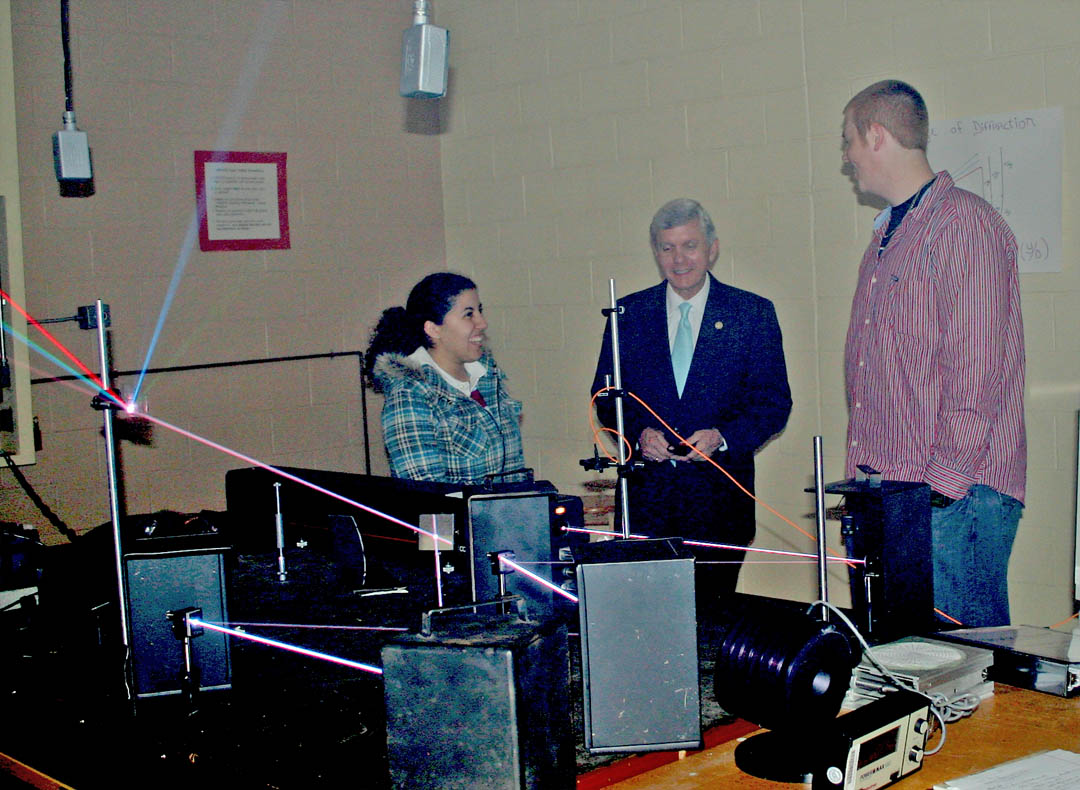
Central Carolina Community College laser and photonics technology students Juana Bethancourth (left), of Sanford, and Shawn Palmer (right) of Fuquay, demonstrate an argon krypton laser for North Carolina Lt. Gov. Walter Dalton during his April 28 visit to the college’s Harnett County Campus, in Lillington. Dalton spoke to an audience of about 100 on the future of community colleges and then toured the campus’ laser and photonics laboratories.
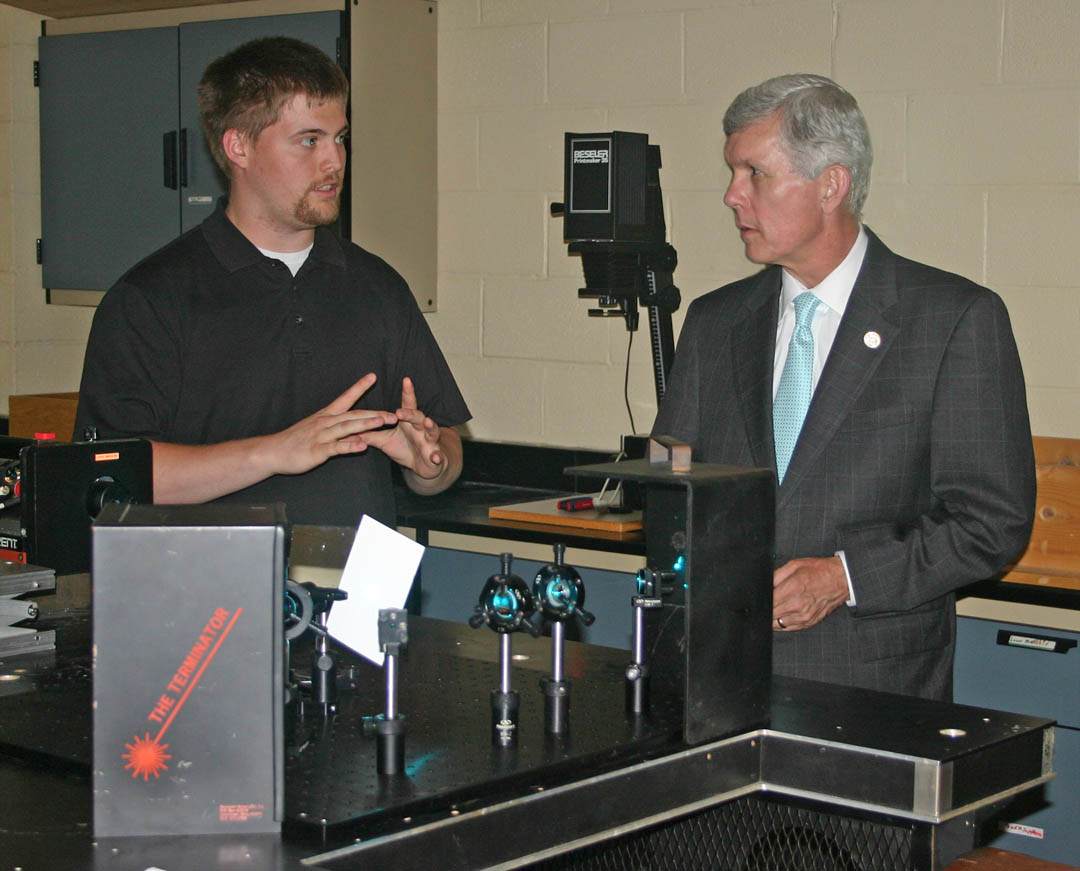
North Carolina Lt. Gov. Walter Dalton (right) visited Central Carolina Community College’s Harnett County Campus April 28 to speak on the future of community colleges and tour the campus’ laser and photonics laboratories. Laser and photonics student Curtis Paul (left), of Lillington, explains the functioning of an interferometer, using an argon ion laser, to the lieutenant governor.
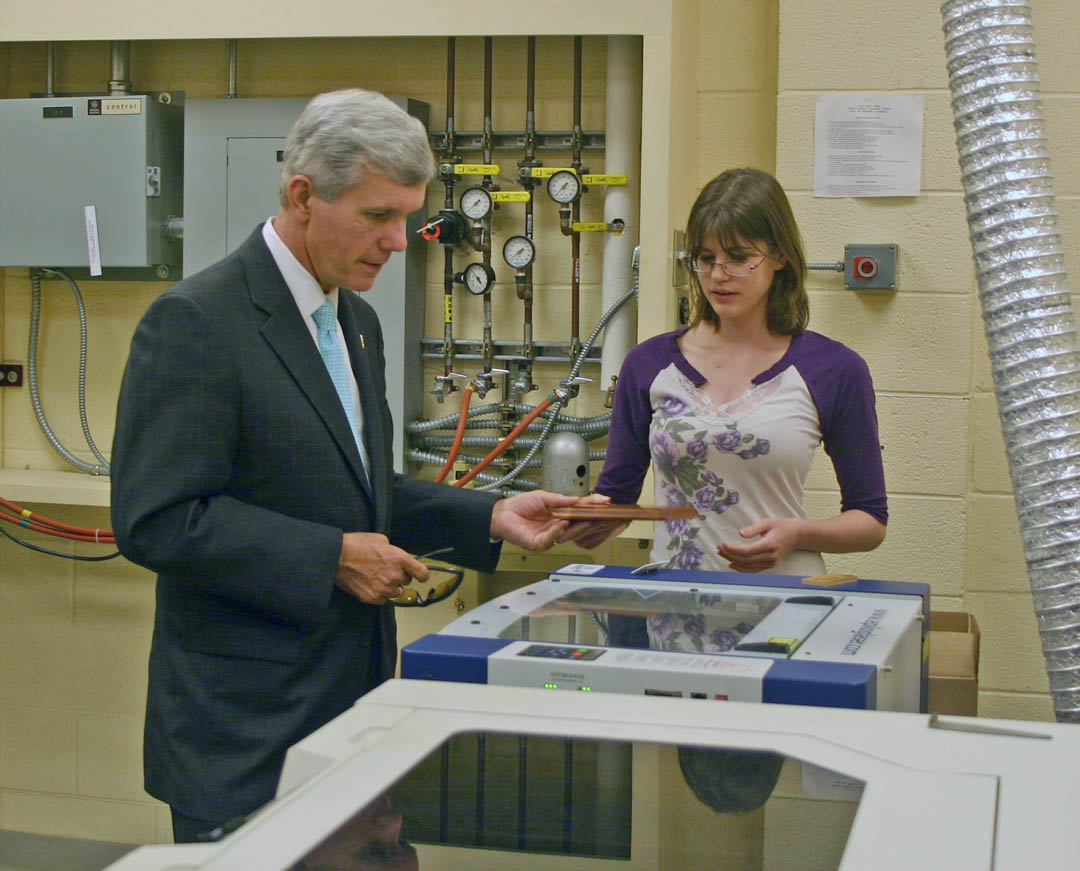
North Carolina Lt. Gov. Walter Dalton (left) visited Central Carolina Community College’s Harnett County Campus April 28 to speak on the future of community colleges and tour the campus’ laser and photonics laboratories. Laser and photonics student Teresa Gietzen (right), of Sanford, describes some of the capabilities of the college’s CO2 laser engraver, including engraving the wood plaque held by Dalton.
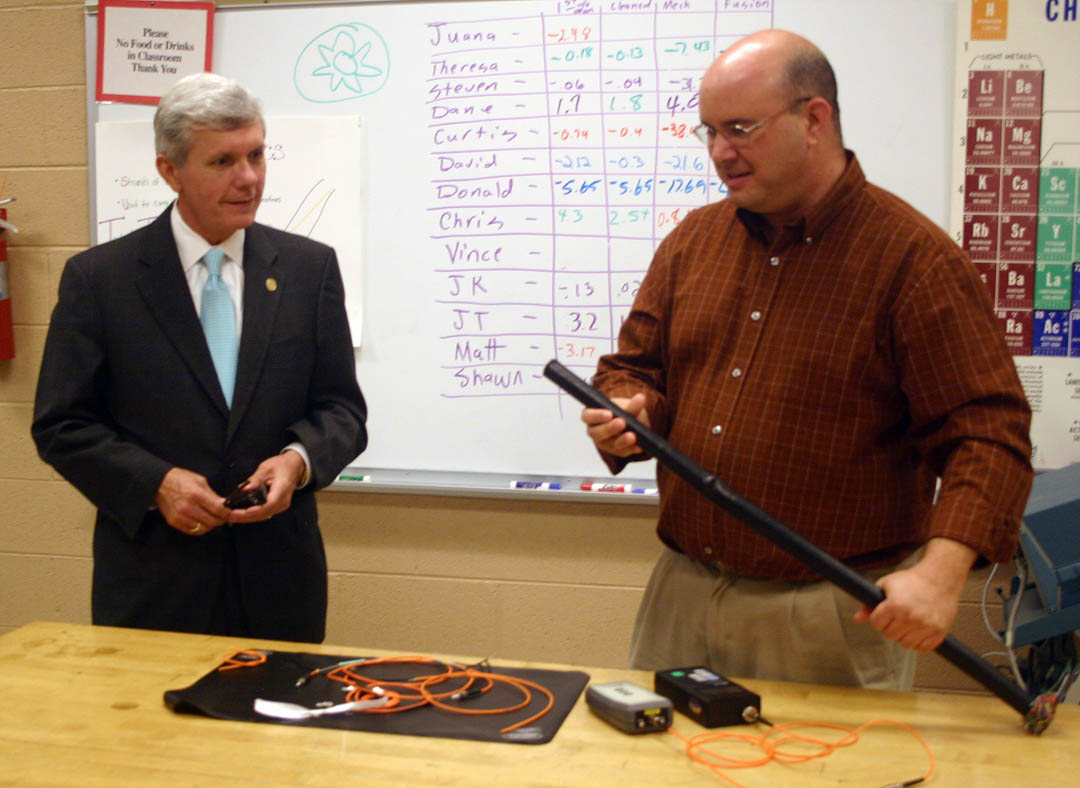
North Carolina Lt. Gov. Walter Dalton (left) visited Central Carolina Community College’s Harnett County Campus April 28 to speak on the future of community colleges and tour the campus’ laser and photonics laboratories. Laser and photonics student David Oliver (right), of Lillington, compares the bandwidth capabilities versus size of the fiber optic cable on the table to the standard, multi-wire copper cable he is holding.
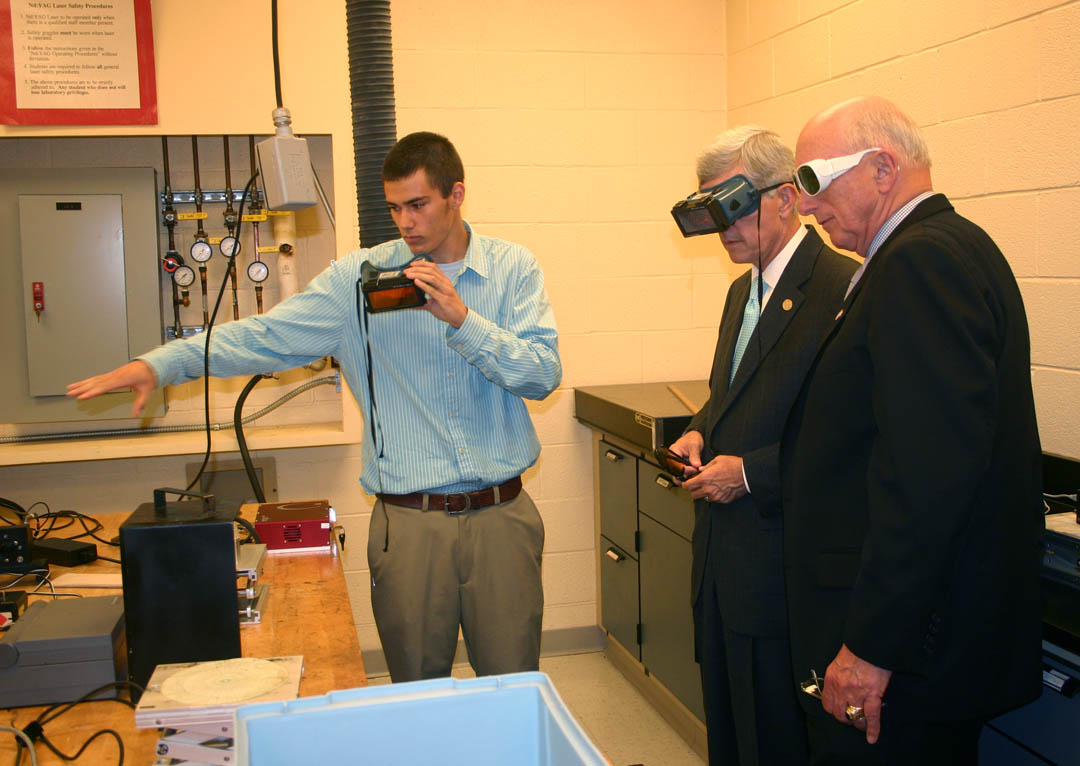
Central Carolina Community College laser and photonics student John-Kevin Frazee, of Dunn, describes the equipment in the college’s Nd:YAG solid state laser laboratory before giving a demonstration to North Carolina Lt. Gov. Walter Dalton (center) and Dunn Mayor Oscar Harris (right). Dalton visited the college’s Harnett County Campus April 28 to speak on the future of community colleges and tour the campus’ laser and photonics laboratories. Harris was among those on the tour.
- Central Carolina Community College
- Serving Chatham, Harnett, & Lee Counties, NC
- 1-800-682-8353





